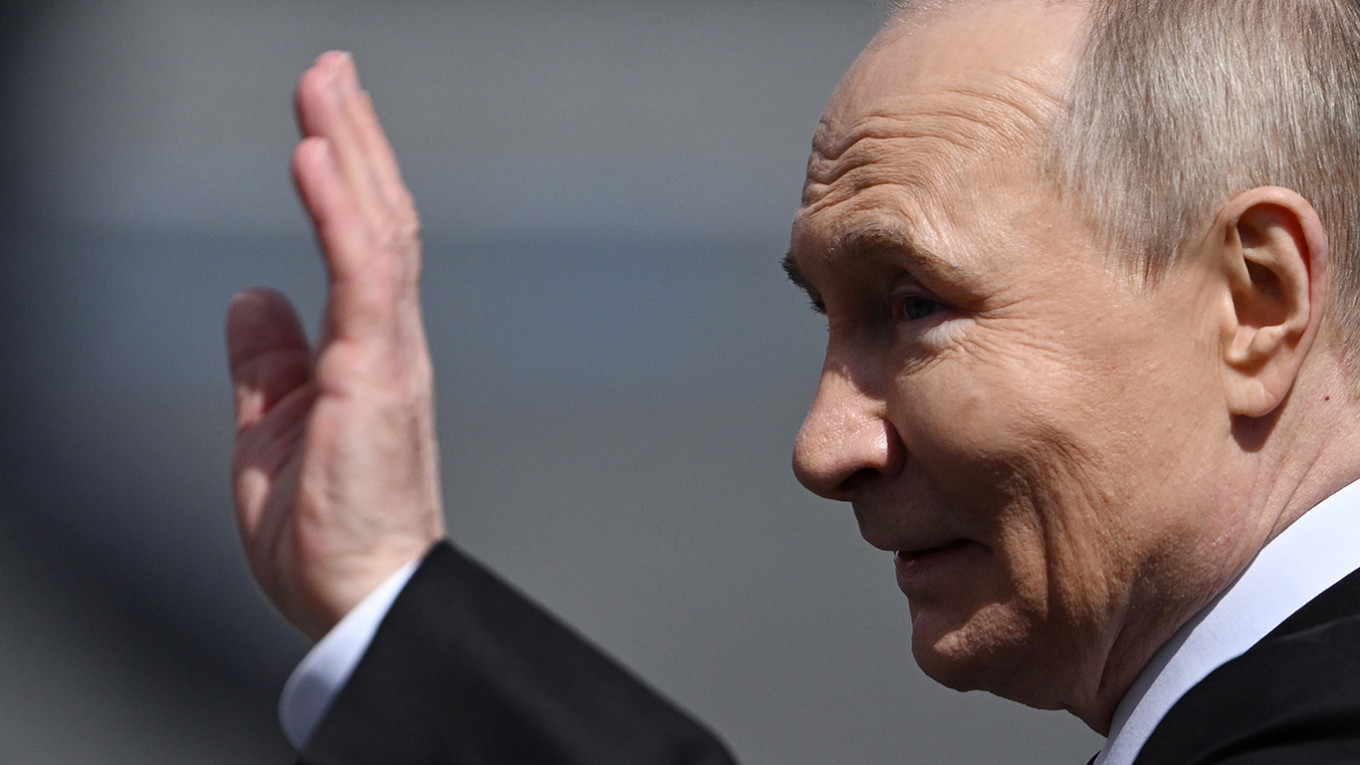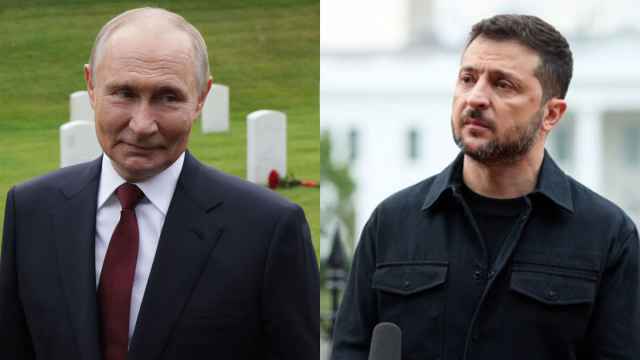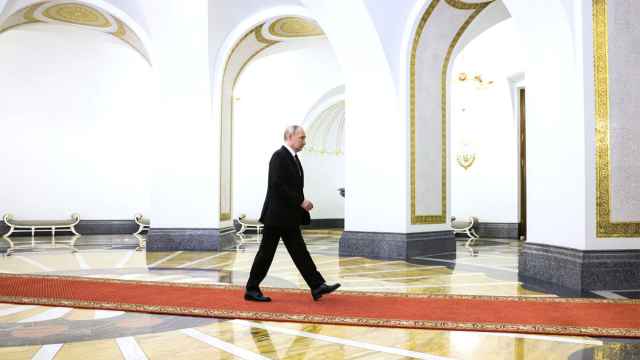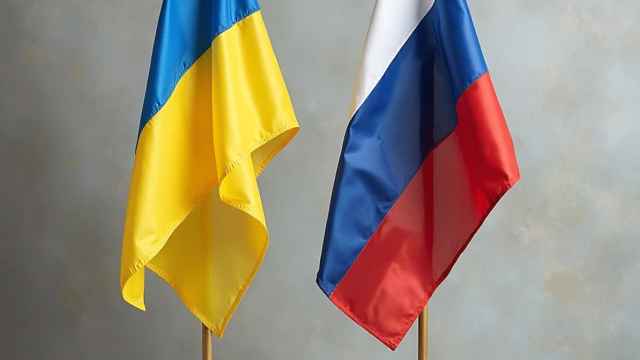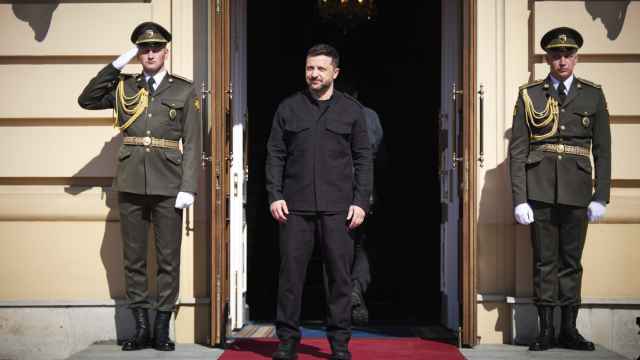President Vladimir Putin’s proposed meeting between Russian and Ukrainian negotiators in Istanbul on Thursday could mark the first direct talks between the two sides since the early weeks of Russia’s full-scale invasion.
Ukraine has warned that Putin’s refusal to meet with his counterpart Volodymyr Zelensky in Turkey would signal that Moscow has no real intention of ceasing hostilities.
The Kremlin declined to say who Russia would send to Turkey after Putin proposed negotiations in a late-night statement over the weekend, but said Moscow “continues to prepare for the talks.”
While Putin insisted that Moscow “has never refused dialogue with the Ukrainian side,” experts and public figures warn that his renewed interest in diplomacy may be more about shaping global perception than a true interest in ending the war.
Analysts say the proposed meeting plays to Russia’s advantage, with Moscow seemingly attempting to reshape the rules on its terms by proposing talks after Kyiv and several European countries called for a full and unconditional 30-day ceasefire starting Monday — a call to which Russia has not responded.
“Russian spokespeople repeatedly stated that a simple ceasefire would give Ukraine a military advantage, allowing it to use the pause to build fortifications, safely produce and import weapons and conduct mobilization,” said Alexander Baunov, a senior fellow at the Carnegie Endowment for International Peace.
By proposing talks without halting combat, Baunov said, “the Russian army will continue its offensive on the front lines and bomb Ukrainian rear positions, reinforcing diplomatic pressure with military force.”
At the same time, the move may be aimed at appeasing both domestic hardliners and international skeptics.
“The chosen format of the counteroffer allows for preventing or delaying Trump’s angry exit from the talks, which he announced in case either or both sides are uncooperative... It also calms the domestic environment, the military, foreign observers and, finally, the pro-war segment of Russian public opinion,” Baunov noted.
“The emphasis on the fact that Russia is merely resuming interrupted Istanbul talks is most suited for balancing between compromise and the desire to fight, between legitimacy and power,” he added.
Tatiana Stanovaya, founder and head of the political analysis project R.Politik, said the agreement to direct talks should not be misread as a shift in Moscow’s strategy or a sign that Putin wants to make a deal with Zelensky.
“His aim is to stall Western arms deliveries, exploit any weakening of Zelensky’s position and exacerbate Ukraine’s internal instability. He also wants Kyiv to lift its ban on talks with Russians, which would allow broader outreach within Ukraine,” Stanovaya said on X.
“He does not believe, even for a moment, that Kyiv in its current state can agree to Russian terms,” she said.
Former Russian diplomat Boris Bondarev offered a similar view.
“It is important to understand that Putin does not need negotiations with Zelensky,” said Bondarev, who resigned from the Russian mission to the UN in Geneva in protest of the invasion.
“This war is not primarily against Ukraine, but rather against the United States through Ukraine — a battle against U.S. global dominance,” Bondarev posted on X.
“This is why Putin has no interest in negotiating with Zelensky; what he truly seeks is a conversation with Trump. But not just any conversation — one where Trump agrees to a new world order, placing Putin’s sphere of influence somewhere close to the size of the former Warsaw Pact,” he said, referring to a collective defense treaty established by the Soviet Union and seven other states to oppose NATO.
“Thus, ‘negotiations with Ukraine’ are merely a means to cloud Washington's judgment and keep the aging Donald in the illusion that ‘Putin wants peace’,” Bondarev added.
Some Russian pro-war figures — often among the most vocal skeptics of any negotiations — have also voiced doubts about Putin’s proposal to hold peace talks with Ukraine.
Jailed nationalist Igor Girkin, a key commander of pro-Russian separatist forces in eastern Ukraine in 2014, said that “any meeting with Zelensky would be disastrous — both personally for Vladimir Vladimirovich [Putin] and for the negotiating stance of the Russian Federation.”
“Zelensky has made a very clever move, putting Moscow in an extremely disadvantageous position,” Girkin said, referring to Zelensky’s proposal to meet Putin in person in Istanbul.
“Putin himself, as well as those close to him, has repeatedly declared Zelensky illegitimate and insisted there was no one in Kyiv to negotiate with. Walking that back would be extremely difficult,” Girkin said.
“However, refusing to meet would not improve the situation for the Russian Federation either, as global media — and not just the media — would interpret it as proof that Russia itself proposed negotiations and then sabotaged them. This would carry all the expected consequences, including tougher sanctions, increased support for Ukraine and intensified efforts to counter Russia,” he said.
A Message from The Moscow Times:
Dear readers,
We are facing unprecedented challenges. Russia's Prosecutor General's Office has designated The Moscow Times as an "undesirable" organization, criminalizing our work and putting our staff at risk of prosecution. This follows our earlier unjust labeling as a "foreign agent."
These actions are direct attempts to silence independent journalism in Russia. The authorities claim our work "discredits the decisions of the Russian leadership." We see things differently: we strive to provide accurate, unbiased reporting on Russia.
We, the journalists of The Moscow Times, refuse to be silenced. But to continue our work, we need your help.
Your support, no matter how small, makes a world of difference. If you can, please support us monthly starting from just $2. It's quick to set up, and every contribution makes a significant impact.
By supporting The Moscow Times, you're defending open, independent journalism in the face of repression. Thank you for standing with us.
Remind me later.



